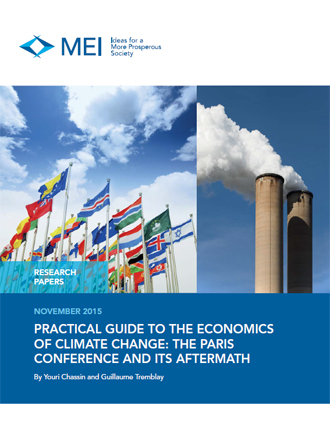
2-minute read
Practical Guide to the Economics of Climate Change: The Paris Conference and Its Aftermath
The Paris Conference that opens on November 30, 2015, is drawing plenty of attention to the fight against climate change, an issue that blends political rhetoric, economic logic and climate science. The aim of this Research Paper is to make key climate change concepts easier to understand as well as to put the mechanisms discussed here in a Canadian context and to base public policy choices on the most relevant facts.
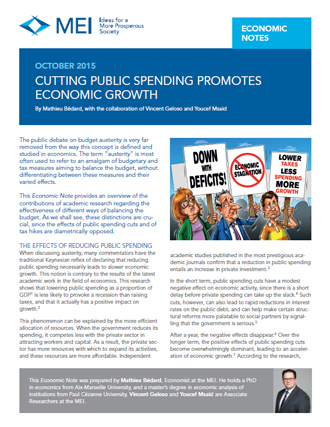
13-minute read
Cutting Public Spending Promotes Economic Growth
The public debate on budget austerity is very far removed from the way this concept is defined and studied in economics. The term “austerity” is most often used to refer to an amalgam of budgetary and tax measures aiming to balance the budget, without differentiating between these measures and their varied effects. This Economic Note provides an overview of the contributions of academic research regarding the effectiveness of different ways of balancing the budget.
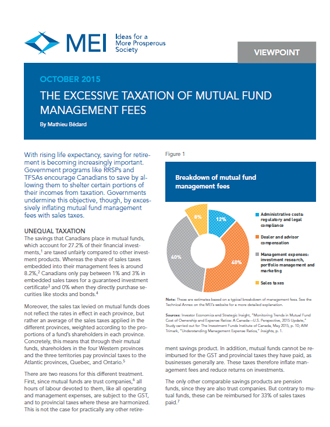
7-minute read
The Excessive Taxation of Mutual Fund Management Fees
With rising life expectancy, saving for retirement is becoming increasingly important. Government programs like RRSPs and TFSAs encourage Canadians to save by allowing them to shelter certain portions of their incomes from taxation. Governments undermine this objective, though, by excessively inflating mutual fund management fees with sales taxes.
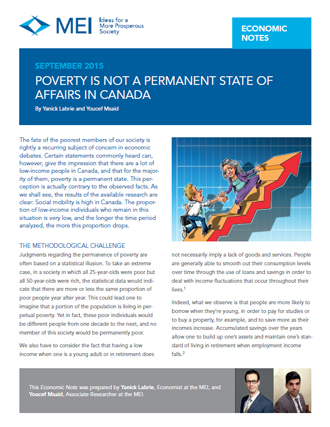
9-minute read
Poverty Is Not a Permanent State of Affairs in Canada
The fate of the poorest members of our society is rightly a recurring subject of concern in economic debates. Certain statements commonly heard can, however, give the impression that there are a lot of low-income people in Canada, and that for the majority of them, poverty is a permanent state. This perception is actually contrary to the observed facts. As we shall see, the results of the available research are clear: Social mobility is high in Canada.
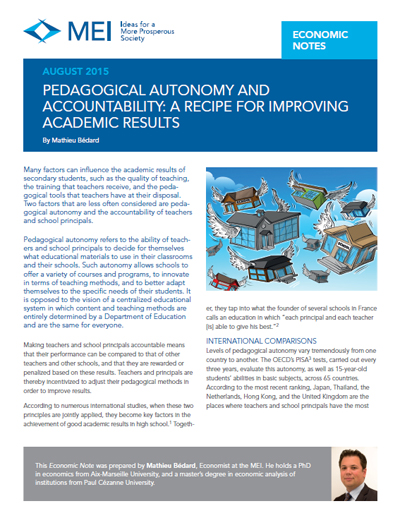
12-minute read
Pedagogical Autonomy and Accountability: A Recipe for Improving Academic Results
Giving teachers and school principals more control over course content and teaching methods, all while rewarding or penalizing them according to the consequences of their decisions, could improve academic results. When autonomy and accountability are jointly applied, students generally achieve better grades, even when standard of living variances are taken into account.
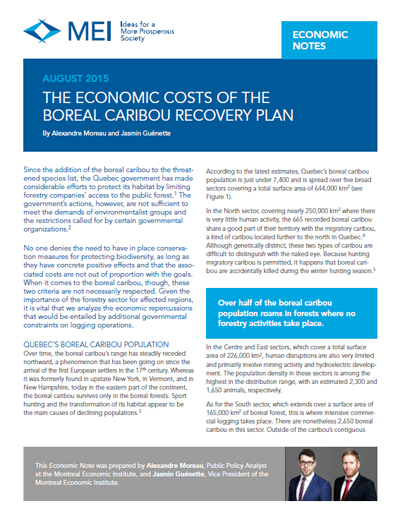
14-minute read
The Economic Costs of the Boreal Caribou Recovery Plan
Since the addition of the boreal caribou to the threatened species list, the Quebec government has made considerable efforts to protect its habitat by limiting forestry companies’ access to the public forest. No one denies the need to have in place conservation measures for protecting biodiversity, as long as they have concrete positive effects and that the associated costs are not out of proportion with the goals. When it comes to the boreal caribou, though, these two criteria are not necessarily respected.

13-minute read
Do We Need a Public Drug Insurance Monopoly in Canada?
In the last few months, the issue of drug insurance has returned to the forefront of public debate in Canada. Some of those speaking out on the topic have suggested replacing the current mixed public-private system run by the provinces with a fully public national pharmacare plan to make sure everyone is covered and to reduce costs. But this type of plan risks harming Canadians by limiting their access to drugs.
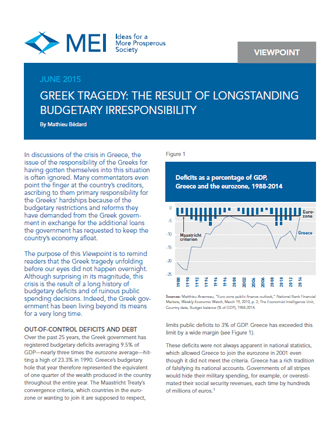
5-minute read
Viewpoint – Greek Tragedy: The Result of Longstanding Budgetary Irresponsibility
In discussions of the crisis in Greece, the issue of the responsibility of the Greeks for having gotten themselves into this situation is often ignored. The purpose of this Viewpoint is to remind readers that the Greek tragedy unfolding before our eyes did not happen overnight. Although surprising in its magnitude, this crisis is the result of a long history of budgetary deficits and of ruinous public spending decisions. Indeed, the Greek government has been living beyond its means for a very long time.
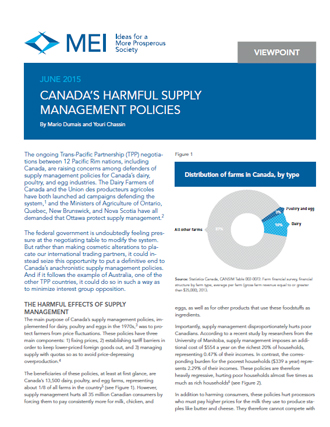
6-minute read
Viewpoint – Canada’s Harmful Supply Management Policies
The ongoing Trans-Pacific Partnership (TPP) negotiations between 12 Pacific Rim nations, including Canada, are raising concerns among defenders of supply management policies for Canada’s dairy, poultry, and egg industries. The federal government is undoubtedly feeling pressure at the negotiating table to modify the system. But rather than making cosmetic alterations to placate our international trading partners, it could instead seize this opportunity to put a definitive end to Canada's anachronistic supply management policies.
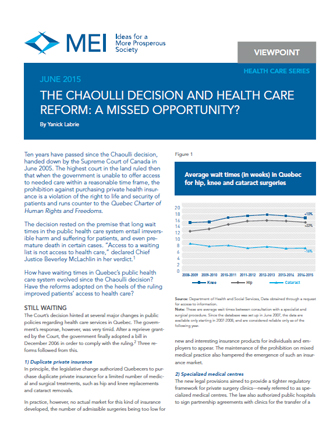
7-minute read
Viewpoint – The Chaoulli Decision and Health Care Reform: A Missed Opportunity?
Ten years have passed since the Chaoulli decision, handed down by the Supreme Court of Canada in June 2005. The highest court in the land ruled then that when the government is unable to offer access to needed care within a reasonable time frame, the prohibition against purchasing private health insurance is a violation of the right to life and security of patients and runs counter to the Quebec Charter of Human Rights and Freedoms. How have waiting times in Quebec’s public health care system evolved since the Chaoulli decision?

